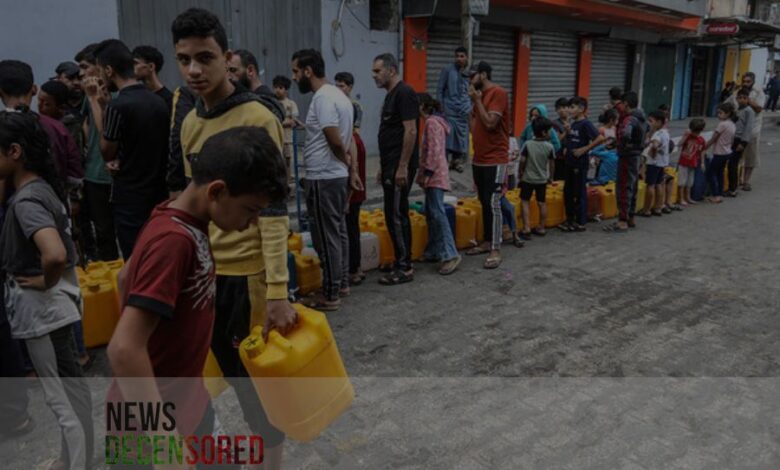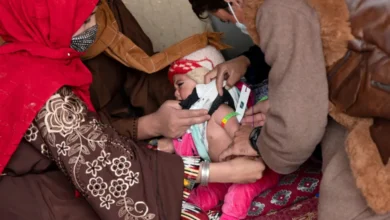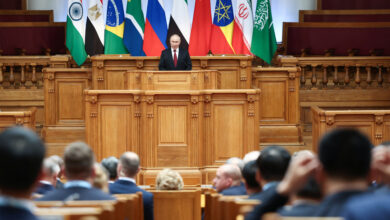World Water Day… when thirst is used as a weapon to kill Gazans

Obtaining water has become a difficult daily task for the majority of Gazans, and this task seems more complicated for them in the northern Gaza Strip, as a result of the massive destruction caused by Israeli air strikes to infrastructure, including water wells and desalination plants.
Dozens of displaced people in the city of Rafah, south of the Gaza Strip, stand in long lines for hours to obtain drinking water, as the devastating Israeli war has continued since the seventh of last October.
Rafah is witnessing a severe water crisis, which has exacerbated the suffering of the displaced, and the issue of obtaining water has become very difficult, due to the depletion of fuel and damage to water facilities as a result of the Israeli bombing.
Since the outbreak of the devastating war on the Gaza Strip, Israel has cut off water, electricity, and fuel supplies to about 2.3 million Palestinians, who suffer from extremely deteriorating conditions and worsening crises, as a result of an ongoing siege that has continued for 17 years.
After UN and international pressure, Israel allowed very limited humanitarian aid to enter Gaza, including fuel for humanitarian needs only.
Polluted water
The displaced person, Umm Alaa, complains about the difficult living conditions, which she says are “beyond the imagination of the human mind,” in light of the continuing devastating war.
Umm Alaa, who preferred not to mention her full name, points out that the severe water shortage crisis in Rafah exacerbates the suffering of the displaced to an indescribable extent.
She says: “Even water, if available, is polluted and unfit for drinking, and contains germs and many impurities.”
Umm Alaa is surprised by the silence of the entire world towards the war crimes and genocide committed against the Palestinians in the Gaza Strip, not to mention the water and food crises.
She added: “It is unfair enough. We do not know how to sleep, nor do we eat or drink normally. We do not know any meaning of life, and our suffering is worsening daily.”
Rafah is currently considered one of the most densely populated areas in the Gaza Strip, after the Israeli army forced Palestinians from the north, center and south of the Strip to migrate there, where there are currently about 1.4 million Palestinians, according to UN and Palestinian data.
Acute shortage
Umm Magdy Salem’s suffering is no different from her previous suffering with the water shortage crisis, and she says: “We are suffering from an acute water shortage.”
Salem explains that obtaining fresh water requires standing in long lines for hours every day until a person can fill only one gallon.
She added: “Water for other uses, such as bathing and washing clothes, reaches us only once every 10 days through municipal lines.”
Diseases are spreading among displaced people and citizens due to the low level of personal hygiene due to the severe water shortage, according to Salem.
It points to the worsening humanitarian crises in the Gaza Strip, most notably the severe shortage of basic necessities of life, such as water and food, especially flour and sugar.




